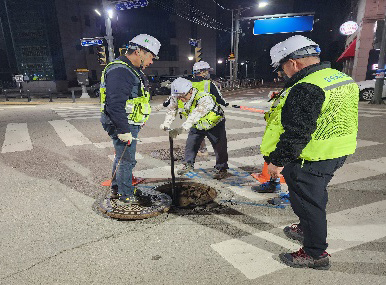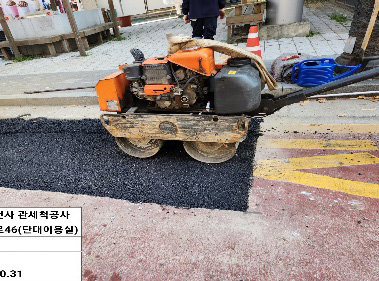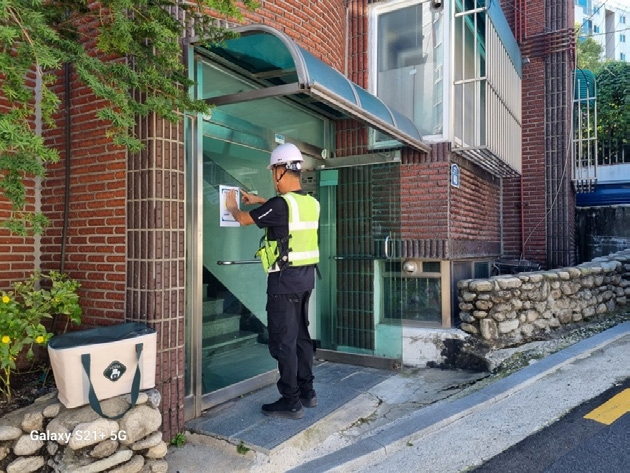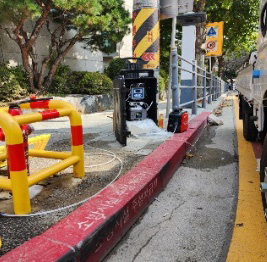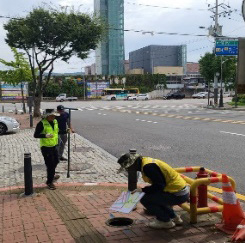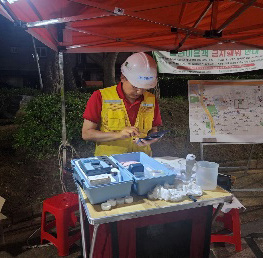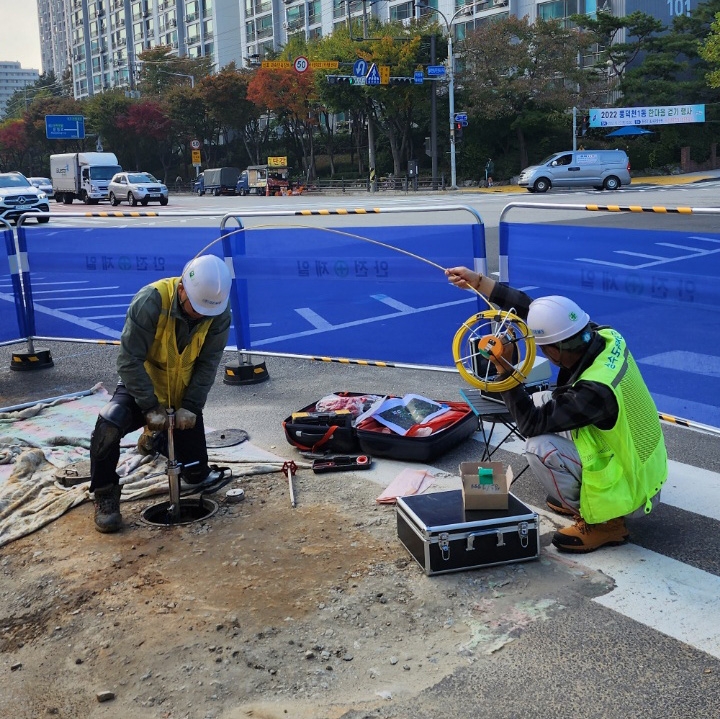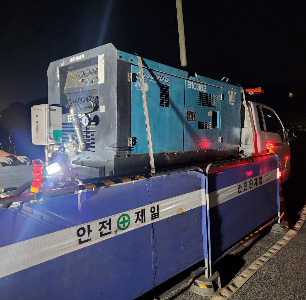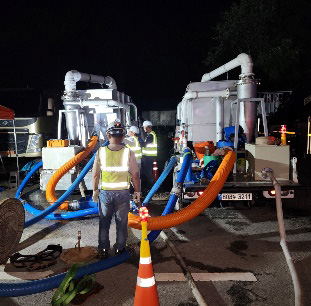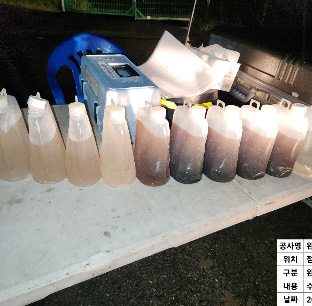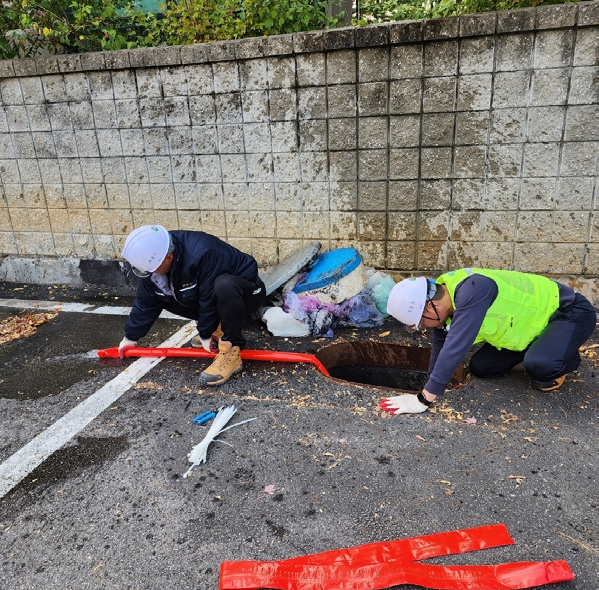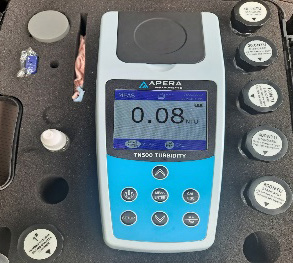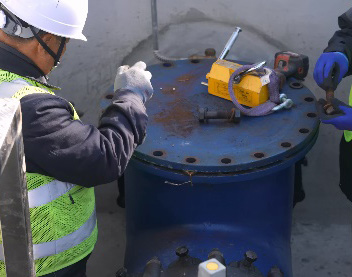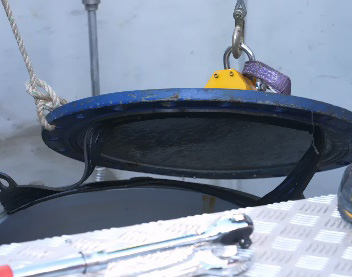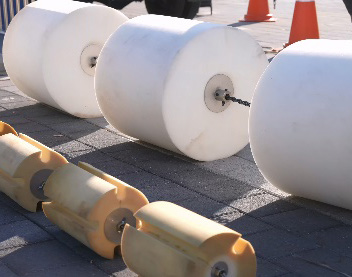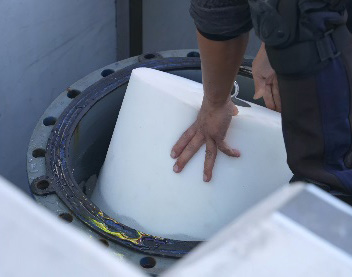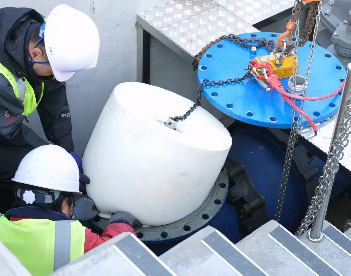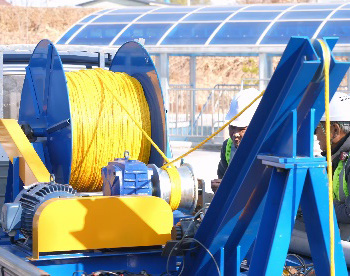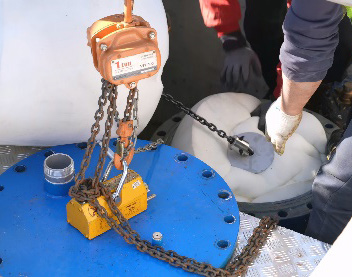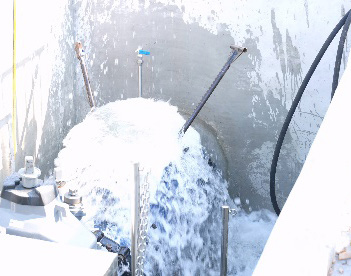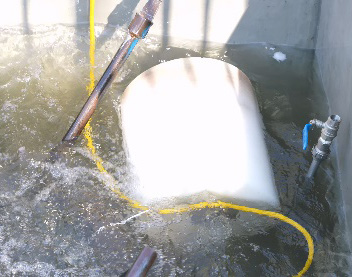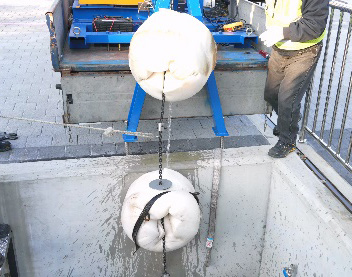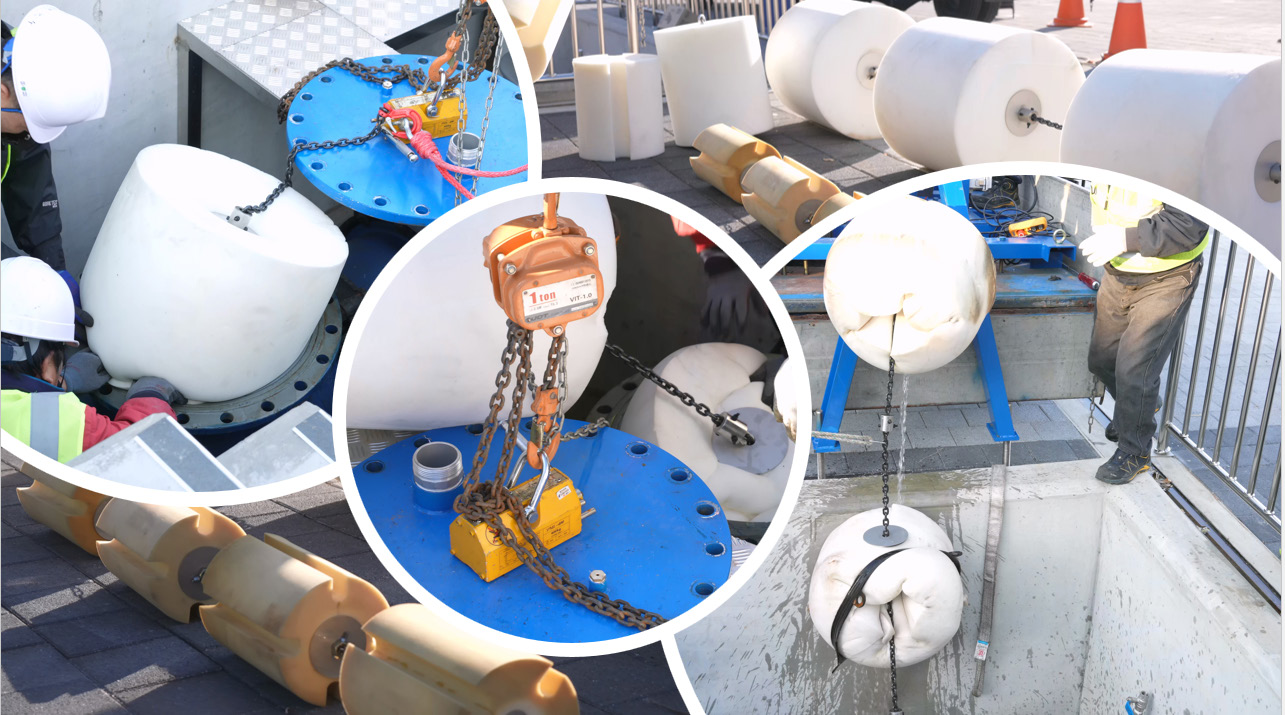Water Pipe Cleaning
Definition [Descaling & Cleaning]
National Construction Standard (KCS 57 60 15 Water Supply Pipeline
Rehabilitation Aug. 2017: Scope and Definitions)
[Scope]
This specification applies to rehabilitation works aimed at upgrading existing pipelines.
Rehabilitation involves removing internal scale from structurally serviceable cast iron and ductile
steel pipes by descaling, followed by lining and other treatments to extend the pipeline’s service
life.
[Descaling]
The water supply descaling method targets existing pipelines to remove scale and foreign materials
inside the pipe (pipe coating is required). Methods include scraping, water jetting, pigging, and
air sand cleaning.
National Construction Standard (KCS 57 60 15 Water Pipe Cleaning Aug.
2017: Scope and Definitions)
[Scope]
This specification applies to cleaning works aimed at improving water quality inside existing
pipelines. Cleaning methods are mainly used to solve aesthetic water quality issues by removing soft
deposits or slime causing discoloration, as well as completely removing rust or hard corrosion
products to improve water quality.
[Cleaning]
Cleaning refers to removing slime, rust, and deposits inside the pipe without damaging the existing
coating, using water flow. Methods include flushing, ice pigging, swab pigging, and air scouring
(pulsating flow cleaning).
Water Supply Network Facility Maintenance Detailed Standards (Ministry of Environment,
Feb 26, 2021)
Article 2 (Definition)
'Pipeline Cleaning' means removing deposits, rust slime, corrosion products inside the water
supply pipe without damaging the existing internal coating to improve water quality.
Patent Name: Pipeline Cleaning Device and Water Quality Improvement
System Including Same
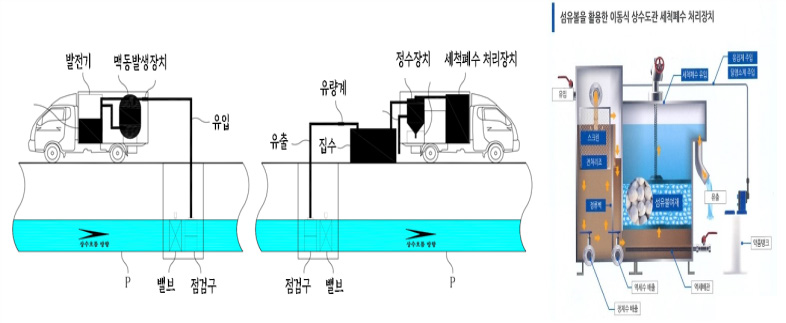
Cleaning Process Flowchart
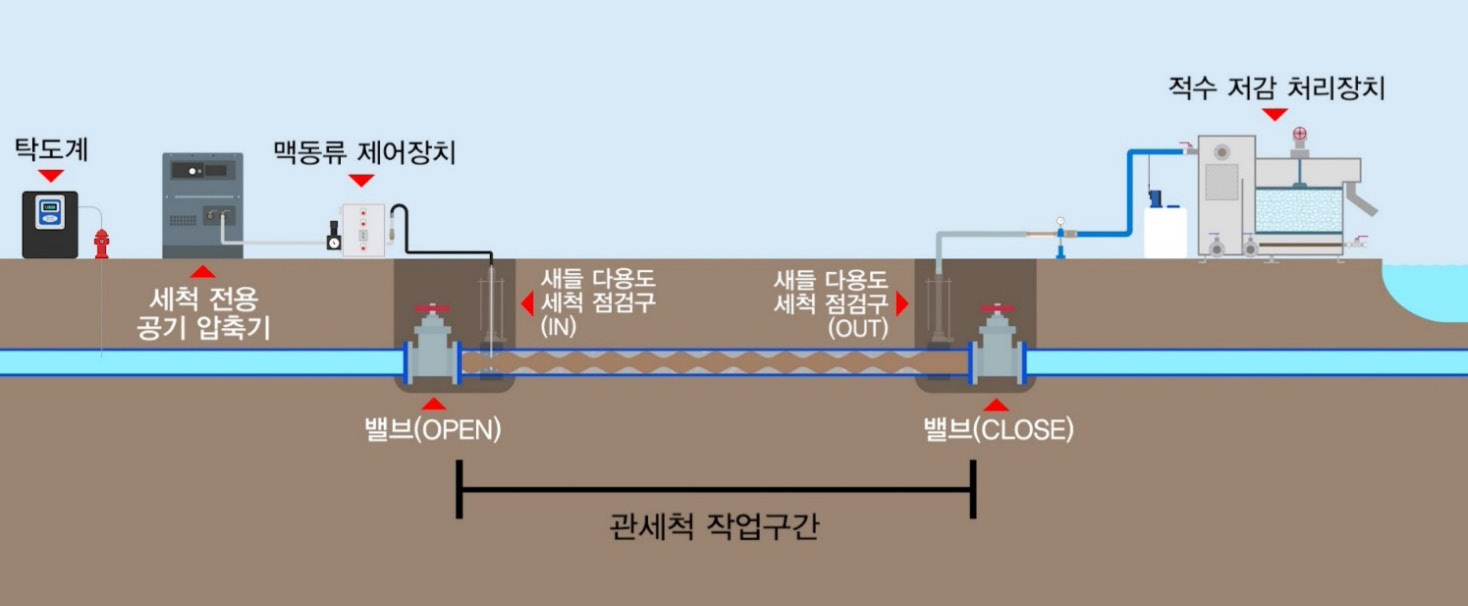
[Pulsating Flow Cleaning]
A cleaning method that removes foreign substances by generating turbulent flow at high velocity
using water slugs, combined with a water quality improvement system that reduces turbid water.
Construction Sequence of Pulsating Air Cleaning Method
Step 1: Survey and Design Phase
- Analyze GIS water network map, conduct field survey, set cleaning sections, and select optimal
locations for inspection holes
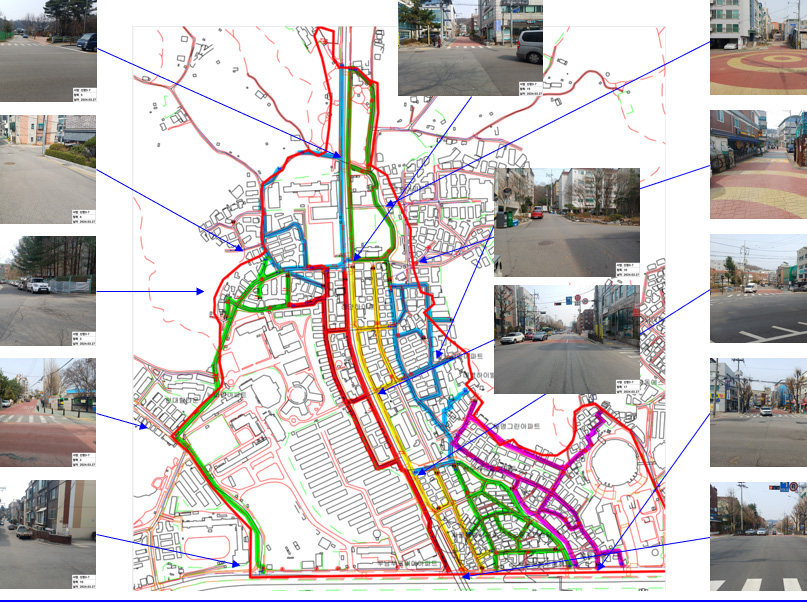
i
Pipeline Survey Results
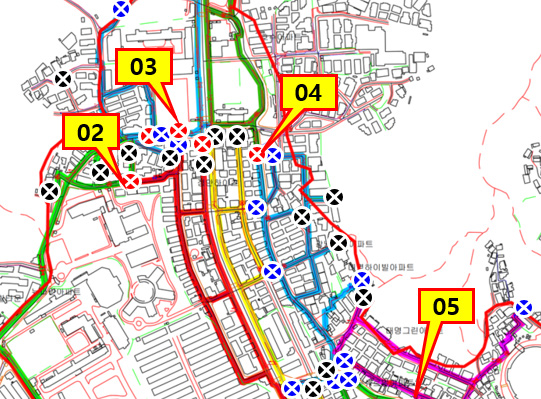
i
Inspection Hole Location Selection
Step 2: Installation of Multipurpose Cleaning Inspection
Hole (Civil Engineering Phase)
- Install chamber with corrosion-resistant protective casing (0318) usable for cleaning process
and maintenance
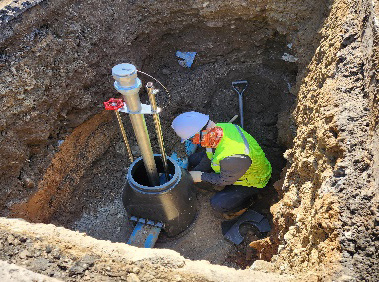
i
Multipurpose Cleaning Inspection Hole Installation
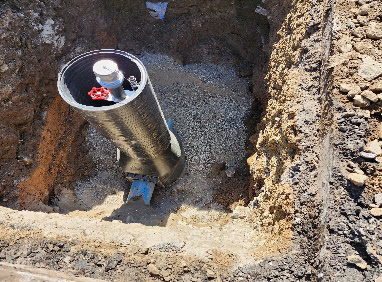
i
Protective Casing Installation
Step 3: Pre-Cleaning Phase
- Conduct community notice regarding pipe shutdown (D-5)
- Perform pipe endoscopy inspection before cleaning (without shutdown)
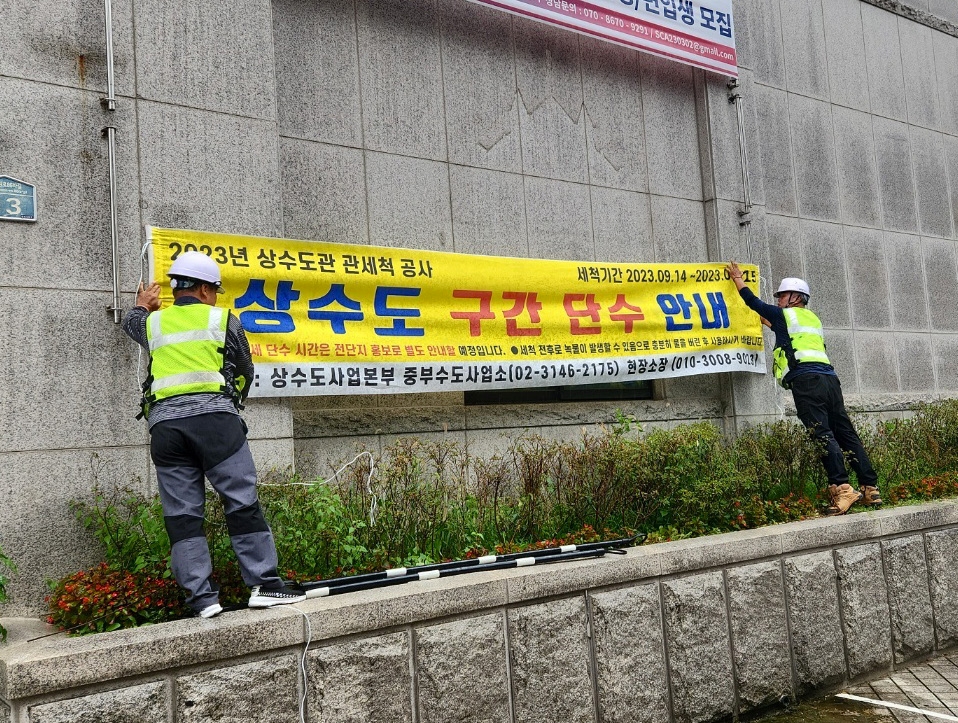
i
Installation of Notice Banners
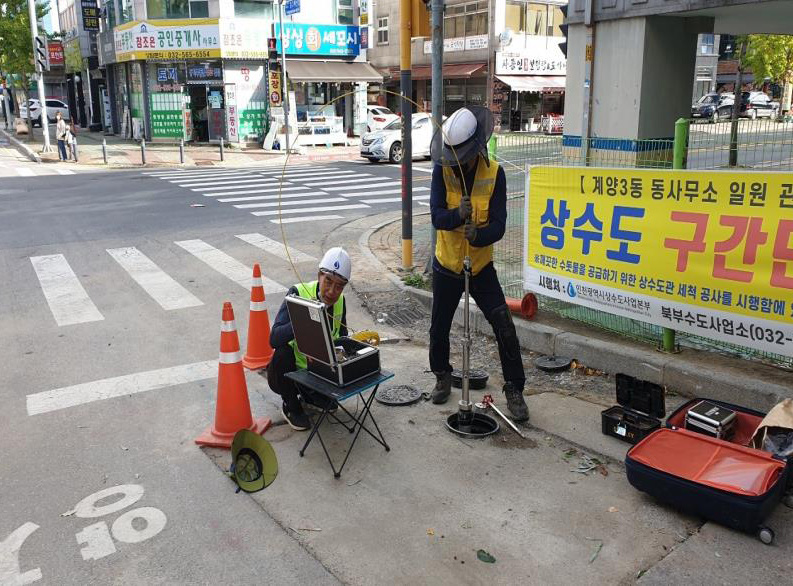
i
Pre-Cleaning Pipe Endoscopy
Step 3-2: Cleaning Construction Phase
- Adjust the number of valve rotations, compressed air pressure, pulsation cycle, etc. for
cleaning construction
- When turbidity reaches its peak and then drops to 1.0 NTU, stop pulsating air injection and
start flushing
- When turbidity reaches 0.5 NTU, stop flushing and complete cleaning
Adopts swab pig method for medium and large pipes (300~800mm) with multi-pig traction
- Cleaning method performed after section shutoff to prevent water hammer
- Excellent cleaning effect without damaging pipe coating or lining
- No blockage or damage to pipes at 45-degree elbows and upper/lower sections
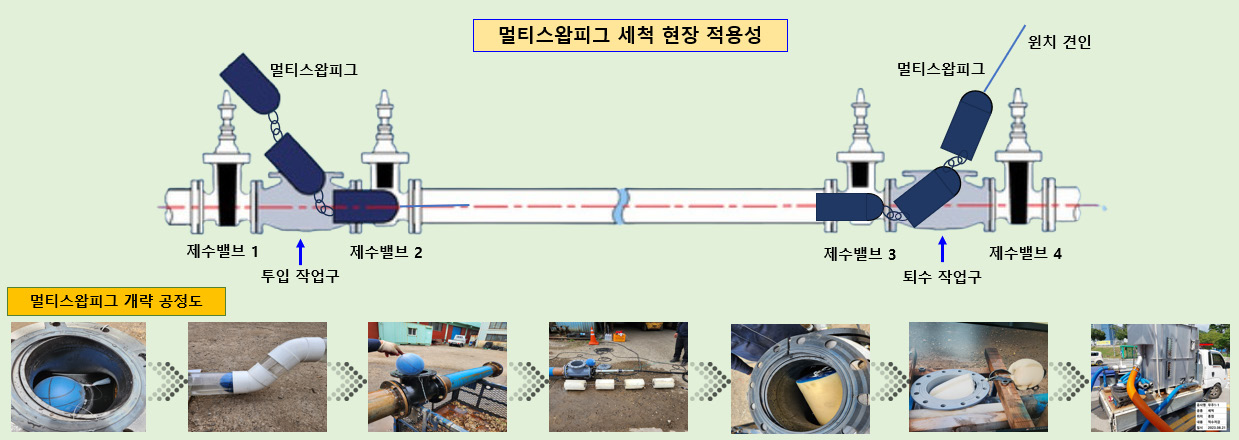
Traction-type Multi Swab Pig


